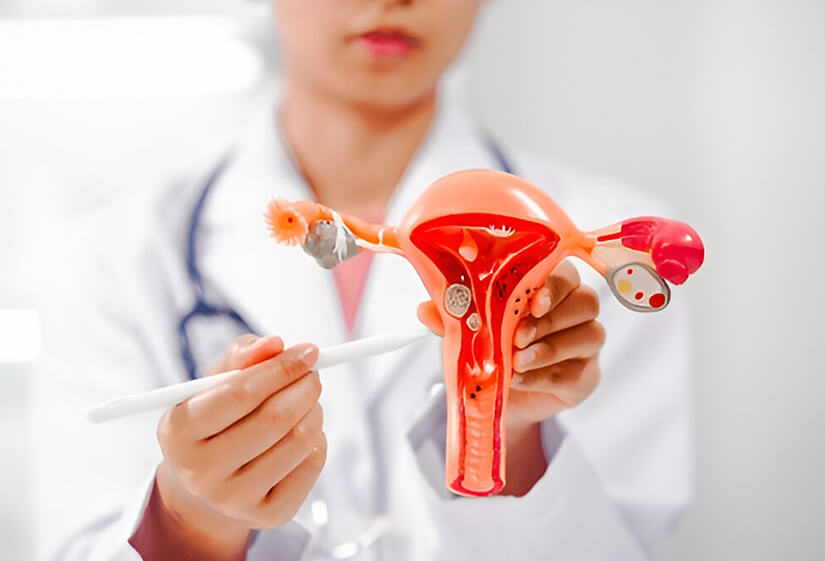Getting Pregnant With Endometriosis – The End-to-End Guide
If you’re struggling with endometriosis and dreaming of starting a family, the journey might seem filled with hurdles, uncertainty, and frustration. However, with advanced endometriosis treatment options available today, it’s entirely possible to achieve a successful pregnancy.
This comprehensive guide deeply explores endometriosis, its impact on fertility, various treatments, and how options like IVF with endometriosis offer hope to couples around the world.
What is Endometriosis and How Does it Affect Fertility?
Endometriosis is a chronic condition where tissue similar to the lining of the uterus grows outside the uterus. This abnormal tissue growth, often found on the ovaries, fallopian tubes, and surrounding organs, leads to inflammation, scar formation, and even adhesions. These complications not only result in pain but also interfere with the reproductive organs, often making it difficult to conceive naturally.
For many women, endometriosis can cause hormonal imbalances, blocked fallopian tubes, and impaired ovarian function—all of which directly affect fertility. The severity of endometriosis plays a big role in the extent of these complications. Yet, the good news is that with the right endometriosis treatment and strategies such as IVF with endometriosis, the chances of achieving pregnancy significantly improve.

Symptoms and Diagnosis of Endometriosis
Before diving into treatment, it’s essential to understand the symptoms and diagnosis of endometriosis. Many women suffer from endometriosis without realizing it because the symptoms can often be mistaken for common menstrual issues. Some of the common symptoms include:
- Chronic pelvic pain
- Painful periods (dysmenorrhea)
- Painful intercourse
- Heavy or irregular menstrual bleeding
- Pain with bowel movements or urination during menstruation
- Difficulty getting pregnant
To diagnose endometriosis, a healthcare provider may recommend an ultrasound, MRI, or even a laparoscopic procedure to view the tissue growth directly. Understanding the severity of the condition allows for a more targeted endometriosis treatment, which is especially crucial when fertility is the goal.
Endometriosis Treatment Options for Fertility
Hormonal Therapy: Hormonal treatment is often the first line of defense in managing endometriosis symptoms. Hormonal birth control, GnRH agonists, and progestins help suppress menstruation and slow the growth of endometrial-like tissue. Although these options don’t directly improve fertility, they can reduce pain and prepare the body for further treatments like IVF.
Laparoscopic Surgery: For women with severe endometriosis, surgical intervention may be necessary to remove lesions, cysts, and scar tissue that may be impacting fertility. Laparoscopic surgery can improve the chances of conceiving, either naturally or through IVF with endometriosis. By physically removing obstructions in the reproductive organs, this endometriosis treatment can clear pathways for egg and sperm to meet.
Intrauterine Insemination (IUI): For mild cases, IUI may be an option. IUI involves placing sperm directly into the uterus around the time of ovulation to increase the chances of conception. However, this method is often less effective for those with moderate to severe endometriosis.
IVF with Endometriosis: IVF is considered one of the most successful fertility treatments for women with endometriosis. By bypassing issues like blocked fallopian tubes or impaired egg quality, IVF allows for fertilization to occur in a controlled lab environment, increasing the odds of a successful pregnancy. This is why IVF with endometriosis has become the go-to treatment for many specialists.
The IVF Process and Why It Works for Endometriosis
IVF involves several steps that work together to optimize the chances of conception. Here’s a closer look at each step and how it’s tailored for those undergoing IVF with endometriosis:
- Ovarian Stimulation: To increase the chances of successful fertilization, multiple eggs are required. Medications are used to stimulate the ovaries to produce more eggs than in a typical cycle.
- Egg Retrieval: Once the eggs mature, they are retrieved using a minimally invasive procedure. This bypasses any obstacles that endometriosis may have caused in the fallopian tubes.
- Fertilization: In the lab, the retrieved eggs are fertilized with sperm. This step bypasses issues like adhesions or blockages in the fallopian tubes.
- Embryo Transfer: After fertilization, a healthy embryo is transferred into the uterus, where it can implant and grow. This approach minimizes the barriers that endometriosis typically presents during natural conception.
IVF with endometriosis is highly effective because it circumvents many challenges that make natural conception difficult. It’s an endometriosis treatment option that allows fertility experts to control every stage of the conception process.
Success Rates of IVF with Endometriosis
While success rates vary, IVF offers promising results for many with endometriosis. Research shows that women with mild to moderate endometriosis often experience IVF success rates close to those of women without the condition. For severe cases, success rates can be slightly lower, but they remain hopeful due to advancements in endometriosis treatment and personalized IVF protocols.
Choosing an experienced IVF centre in Delhi is key to enhancing these success rates. Clinics that specialize in treating endometriosis-related infertility understand the nuances and employ tailored approaches to optimize outcomes.
Preparing for IVF: Tips to Improve Success with Endometriosis
Getting the best results from IVF with endometriosis requires preparation. Here are a few proactive steps to help maximize success:
- Diet and Lifestyle Adjustments: Anti-inflammatory diets, rich in fruits, vegetables, lean protein, and omega-3 fatty acids, can help reduce inflammation and support overall reproductive health. Limiting alcohol, caffeine, and processed foods may also improve your chances.
- Stress Management: Stress can impact hormone levels and fertility. Techniques like meditation, yoga, or regular physical exercise can contribute positively to endometriosis treatment and enhance IVF outcomes.
- Follow Medical Protocols: Depending on the severity of your endometriosis, certain medications or surgeries may be recommended before starting IVF. Adhering to these protocols can make a significant difference in the IVF success rate.
- Find a Specialized IVF Centre in Delhi: Not all IVF centres have expertise in managing endometriosis. Choosing a clinic with experience in IVF with endometriosis means they’ll be prepared for the unique challenges this condition presents, increasing the likelihood of a successful outcome.
New Developments in Endometriosis Treatment and IVF
The medical field is continually innovating, and endometriosis treatment is no exception. Today, advanced techniques like preimplantation genetic testing (PGT) help ensure that only the healthiest embryos are used in IVF. Additionally, new medications and minimally invasive surgical techniques improve recovery times and treatment efficacy, offering women more options than ever.
At leading IVF centres, techniques such as vitrification for embryo freezing and laser-assisted hatching are employed to give patients the highest possible chance of success. Staying updated on these advancements and selecting a modern IVF centre in Delhi can make all the difference in your journey.
Frequently Asked Questions About IVF with Endometriosis
- Can endometriosis return after IVF?
Yes, endometriosis can recur after IVF, especially since pregnancy does not provide a permanent cure. However, many women experience symptom relief during pregnancy, which can sometimes extend into postpartum. - Is IVF painful for women with endometriosis?
While IVF procedures are typically well-managed for pain, some discomfort may occur. Choosing an IVF centre that prioritizes patient comfort can ease this process. - What happens if IVF fails the first time?
Not every IVF cycle results in pregnancy, but multiple cycles increase the chances of success. Each round provides valuable insights that can inform future treatment protocols.
Can IVF Cure Endometriosis?
A common misconception is that pregnancy through IVF might cure endometriosis. While pregnancy can alleviate symptoms temporarily due to hormonal changes, it does not eliminate the underlying condition. Endometriosis treatment is essential before, during, and sometimes even after IVF to manage symptoms and enhance overall reproductive health.
The Emotional Impact of IVF and Endometriosis
Managing endometriosis and undergoing IVF can be emotionally taxing. It’s normal to feel overwhelmed by the physical, mental, and financial challenges associated with these treatments. Seeking support from friends, family, or even counseling services at an IVF centre in Delhi can provide much-needed emotional balance. Remember, you’re not alone, and the journey is shared by many.
Final Words of Encouragement
Endometriosis may present challenges, but it doesn’t have to limit your dreams of parenthood. With advancements in endometriosis treatment and the targeted approach of IVF with endometriosis, success is within reach. Each journey is unique, and with the right care, hope remains strong.
Ready to Take the Next Step?
If endometriosis has impacted your fertility journey, now is the time to seek expert help. Dr. Rhythm Gupta, a renowned IVF specialist in New Delhi, has extensive experience in helping women with endometriosis achieve successful pregnancies. Dr. Gupta’s specialized approach to endometriosis treatment and IVF, combined with compassionate care, has made parenthood a reality for countless couples.
Book your consultation today and take the first step toward your dream of building a family.



